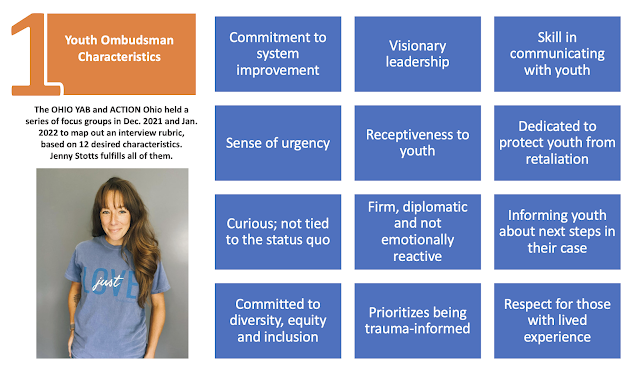The OHIO YAB established a partnership in 2021 with Ohio Legal Help, a two-year old non-profit organization that was established by the Ohio Access to Justice Foundation, the Ohio Supreme Court, Ohio’s legal aids, and other stakeholders in Ohio’s legal system.
Ohio Legal Help was planning to create a special section on their website to support the legal needs of current and former foster youth, and invited feedback from current and former foster youth.
Their new legal information hub for foster youth is now live, and includes:
- Foster Youth Bill of Rights
- Foster Youth Rights in Court
- Aging Out of Foster Care
- Child Welfare Investigations
- Changing Your Legal Name
- Getting Copies of Vital Records
- Sealing and Expunging Juvenile Record
Below are the Top 14 Legal Needs that were initially suggested by Ohio foster youth:
1.) Assistance in Accessing Benefits: Such as Medicaid to age 26, Social Security and/or other benefits for which they might be eligible. And being unsure whether they are allowed to apply for food stamps if they are in Bridges or enrolled in college.
2.) Custodial Issues: Former fosters seeking to maintain custody or contact with their children.
3.) Filling Out Forms: Assistance with leases, filing taxes, understanding the FAFSA, applying for Educational Training Vouchers, etc.
4.) Housing Issues: Avoiding eviction, handling landlord-tenant disputes, and how to address unsafe housing conditions (bugs, mice, mold or lead).
5.) Identity Theft: Foster youth are at high risk for identity theft because they frequently change placements, giving an expanding group of adults access to their personal information.
6.) Legal Citizenship: Ensuring that young people don’t emancipate from foster care and then discover that they are not legal citizens. Young people who are abused, neglected or abandoned by their parents must apply for Special Juvenile Immigrant Status before age 21.
7.) Name Change: Seeking a legal name change in order for their last name to match that of a siblings, or in order to not reflect an adoptive family if that adoption ended in dissolution.
8.) Protection Orders: Seeking a restraining order and other protections, when trying to escape an abusive relationship during young adulthood.
9.) Records: Desire to access their case file, ICCA form, school records, medical records, adoption records and/or desire to expunge a juvenile record.
10.) Rights Violations: Wanting to ensure that a prior abuser is no longer able to harm others.
11.) Sibling Connections: Assistance in contacting one or more siblings from whom they were separated.
12.) Vital Records: Assistance for young adults who do not have a birth certificate, Social Security card, and/or photo ID.
13.) Wage Issues: Young people who do not receive payment for work they did, and are unsure of how to seek recourse.
14.) Youth Voice in Court: Desire to have a voice in their case plan, transition plan, placement decisions, and/or staff annual reviews, and to be notified about and allowed to attend hearings and communicate with their judge.















































